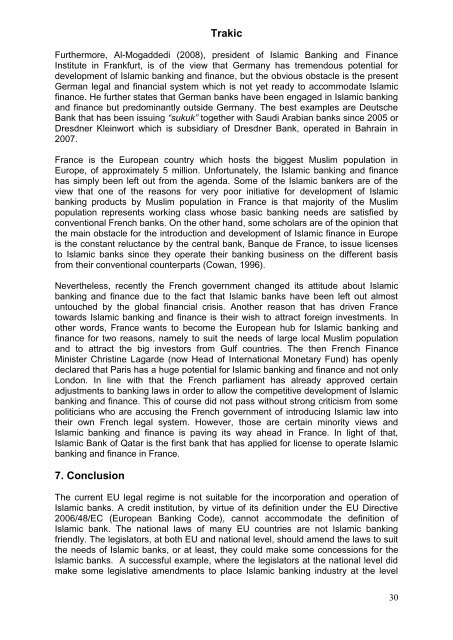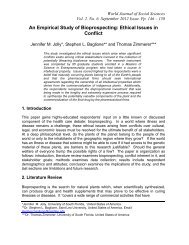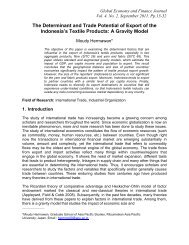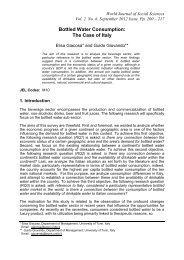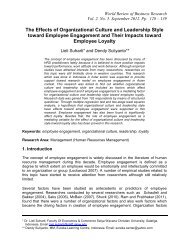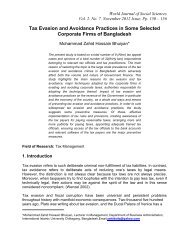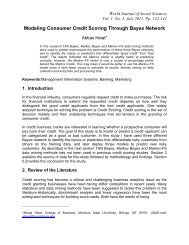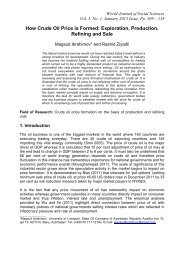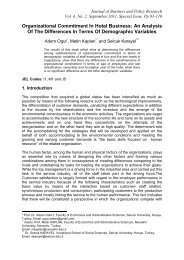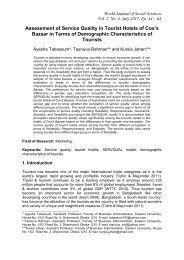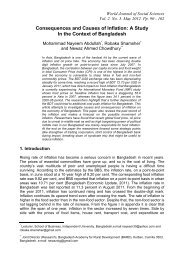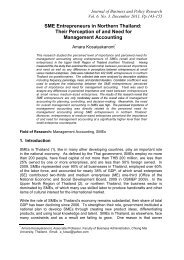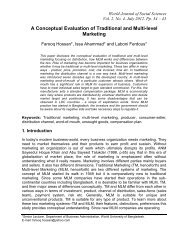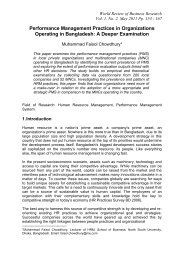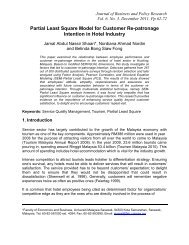Europe's Approach to Islamic Banking: A Way Forward - Wbiaus.org
Europe's Approach to Islamic Banking: A Way Forward - Wbiaus.org
Europe's Approach to Islamic Banking: A Way Forward - Wbiaus.org
Create successful ePaper yourself
Turn your PDF publications into a flip-book with our unique Google optimized e-Paper software.
TrakicFurthermore, Al-Mogaddedi (2008), president of <strong>Islamic</strong> <strong>Banking</strong> and FinanceInstitute in Frankfurt, is of the view that Germany has tremendous potential fordevelopment of <strong>Islamic</strong> banking and finance, but the obvious obstacle is the presentGerman legal and financial system which is not yet ready <strong>to</strong> accommodate <strong>Islamic</strong>finance. He further states that German banks have been engaged in <strong>Islamic</strong> bankingand finance but predominantly outside Germany. The best examples are DeutscheBank that has been issuing “sukuk” <strong>to</strong>gether with Saudi Arabian banks since 2005 orDresdner Kleinwort which is subsidiary of Dresdner Bank, operated in Bahrain in2007.France is the European country which hosts the biggest Muslim population inEurope, of approximately 5 million. Unfortunately, the <strong>Islamic</strong> banking and financehas simply been left out from the agenda. Some of the <strong>Islamic</strong> bankers are of theview that one of the reasons for very poor initiative for development of <strong>Islamic</strong>banking products by Muslim population in France is that majority of the Muslimpopulation represents working class whose basic banking needs are satisfied byconventional French banks. On the other hand, some scholars are of the opinion thatthe main obstacle for the introduction and development of <strong>Islamic</strong> finance in Europeis the constant reluctance by the central bank, Banque de France, <strong>to</strong> issue licenses<strong>to</strong> <strong>Islamic</strong> banks since they operate their banking business on the different basisfrom their conventional counterparts (Cowan, 1996).Nevertheless, recently the French government changed its attitude about <strong>Islamic</strong>banking and finance due <strong>to</strong> the fact that <strong>Islamic</strong> banks have been left out almostun<strong>to</strong>uched by the global financial crisis. Another reason that has driven France<strong>to</strong>wards <strong>Islamic</strong> banking and finance is their wish <strong>to</strong> attract foreign investments. Inother words, France wants <strong>to</strong> become the European hub for <strong>Islamic</strong> banking andfinance for two reasons, namely <strong>to</strong> suit the needs of large local Muslim populationand <strong>to</strong> attract the big inves<strong>to</strong>rs from Gulf countries. The then French FinanceMinister Christine Lagarde (now Head of International Monetary Fund) has openlydeclared that Paris has a huge potential for <strong>Islamic</strong> banking and finance and not onlyLondon. In line with that the French parliament has already approved certainadjustments <strong>to</strong> banking laws in order <strong>to</strong> allow the competitive development of <strong>Islamic</strong>banking and finance. This of course did not pass without strong criticism from somepoliticians who are accusing the French government of introducing <strong>Islamic</strong> law in<strong>to</strong>their own French legal system. However, those are certain minority views and<strong>Islamic</strong> banking and finance is paving its way ahead in France. In light of that,<strong>Islamic</strong> Bank of Qatar is the first bank that has applied for license <strong>to</strong> operate <strong>Islamic</strong>banking and finance in France.7. ConclusionThe current EU legal regime is not suitable for the incorporation and operation of<strong>Islamic</strong> banks. A credit institution, by virtue of its definition under the EU Directive2006/48/EC (European <strong>Banking</strong> Code), cannot accommodate the definition of<strong>Islamic</strong> bank. The national laws of many EU countries are not <strong>Islamic</strong> bankingfriendly. The legisla<strong>to</strong>rs, at both EU and national level, should amend the laws <strong>to</strong> suitthe needs of <strong>Islamic</strong> banks, or at least, they could make some concessions for the<strong>Islamic</strong> banks. A successful example, where the legisla<strong>to</strong>rs at the national level didmake some legislative amendments <strong>to</strong> place <strong>Islamic</strong> banking industry at the level30


